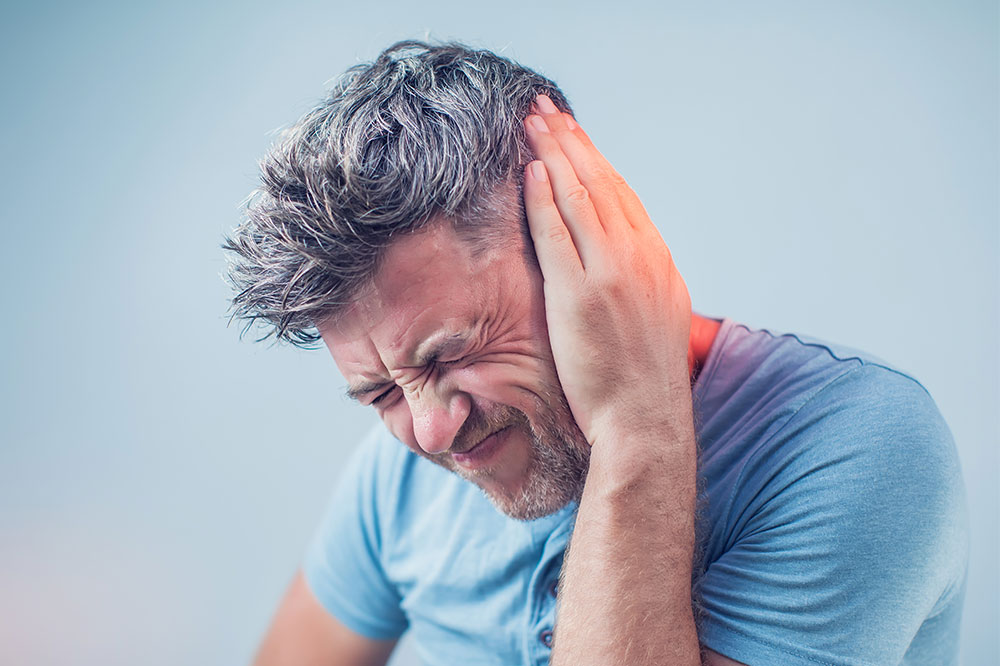6 popular remedies for tinnitus
Tinnitus is an auditory issue that causes an unusual ringing sound in the ears. People may also hear a buzzing, roaring, hissing, or even whistling noise without any external source producing these sounds. And this can be quite frustrating as the noise can affect one’s quality of hearing. Tinnitus is generally the result of any damage to the middle or inner regions of the ear. Simply put, the ear is unable to pick up sounds and transmit electrical impulses to the brain to process the sound waves. Treating underlying medical conditions is usually the approach for managing tinnitus.
While tinnitus cannot be cured, a combination of treatment and therapy can help manage the symptoms for long term relief.

Basic care
The severity of a condition like tinnitus can be diagnosed using audiological exams, facial movements, imaging tests, and lab tests. Normally patients may hear varied clicking, pulsing, rushing, humming, and ringing sounds of low and high pitch levels. Once the underlying cause is determined, doctors may suggest removing ear wax or treat conditions that affect blood vessels to reduce the symptoms. Tinnitus can also result from the consumption of certain medications. Doctors may recommend changing the dosage or frequency to see if symptoms can be managed that way.
Medications for tinnitus relief
While medications cannot provide a lasting cure for tinnitus, there are some prescriptions that address linked issues that may worsen the ringing problem, like stress, anxiety, and depression. Some antidepressants and anti-anxiety medications can help a person overcome the distress caused by tinnitus. These medicines even allow them to make the symptom less noticeable. Consulting with the doctor first to understand the possible side effects is highly advisable. Another important step to take is consulting a professional healthcare provider to weigh the pros and cons of short-term relief over long term habituation.
Audio devices for tinnitus management
Doctors also advise patients the use of hearing aids as a temporary cure for tinnitus. This is because hearing loss is one of the main triggers of the persistent ringing sound. Mild-to-moderate hearing loss alters the way the brain perceives sound. What most people experience soon after is the ringing. A hearing aid amplifies and regulates sound waves to help the brain better receive auditory responses. In layman terms, improved hearing can provide some relief from tinnitus.
Those who have not lost hearing in one or both ears can alternatively opt for sound masking devices. These auditory devices produce a pleasant external sound that drowns the ringing with a higher frequency. While wearing this device for prolonged periods may not be possible, masking with white noise machines can be used as a temporary cure for tinnitus. One can also use custom medical-grade devices that produce a specific sound tailored to counter tinnitus. These devices have long-lasting effects even if they are intermittently worn.
Cognitive and behavioral therapy for symptom management
Persistent ringing in the ear is one of the worst symptoms to handle in the long run. This is why behavioral therapy is suggested for people who feel like they are not benefitting from medications and auditory devices. Professional counseling helps patients better perceive their symptoms and associated discomforts. These changes are also consistent with lifestyle habits and are more effective.
- Cognitive behavioral therapy (CBT)
Licensed psychologists and mental healthcare professionals help patients learn and use coping mechanisms to make the tinnitus less bothersome over time. In most cases, this brain reconditioning can prove to be a better cure for tinnitus. Counselling for tinnitus can be done individually or as part of a group therapy. Online counselling sessions are also beneficial. - Tinnitus retraining therapy (TRT)
TRT combines the use of auditory devices for masking sounds during a counselling session to condition the brain. This therapy helps patients overcome the distress from the ringing and train the mind to ignore the symptoms altogether. TRT also helps reduce one’s dependence on treatment in the future once the mind is conditioned.
General lifestyle changes
Those who love to drink coffee should consider switching to decaf. Cutting back on smoking and alcohol consumption also helps. These lifestyle changes support blood circulation. Doctors also recommend considering alternative therapies, exercise, and better sleep to bring down stress levels. Living an active lifestyle and following a healthy diet will automatically keep blood pressure under control and reduce the impact of tinnitus. Prolonged exposure to loud sounds or using headphones at a high volume can also damage the auditory reception of the ears. So, one must avoid listening to music at a high decibel. Also, protecting the ears while operating heavy machinery can protect the ear drums for prolonged periods.
Mindfulness and relaxation for self-care
Self-care approaches for tinnitus management can also prove to be beneficial in the long run. This approaches include a mindfulness-based stress reduction (MBSR) programs designed specifically for tinnitus management. Often, meditation is combined with MBSR programs.

